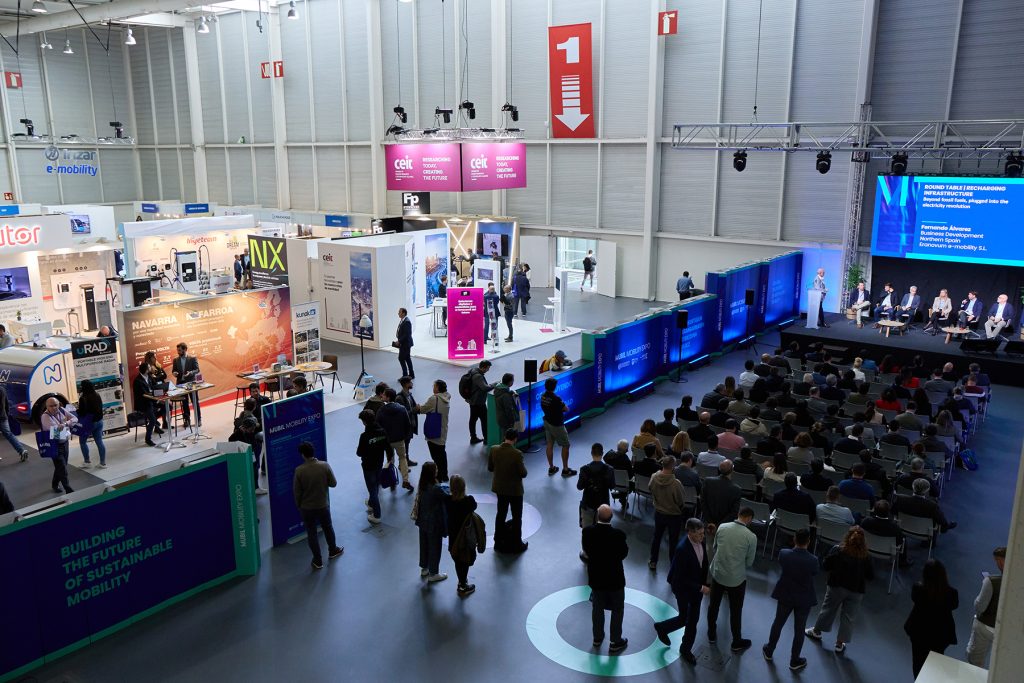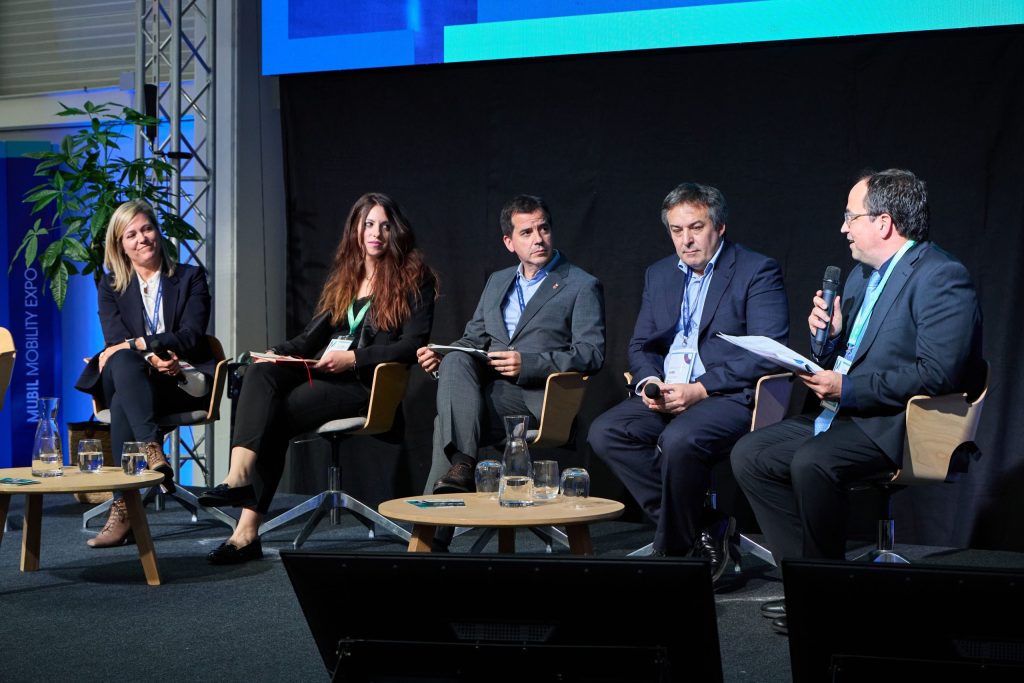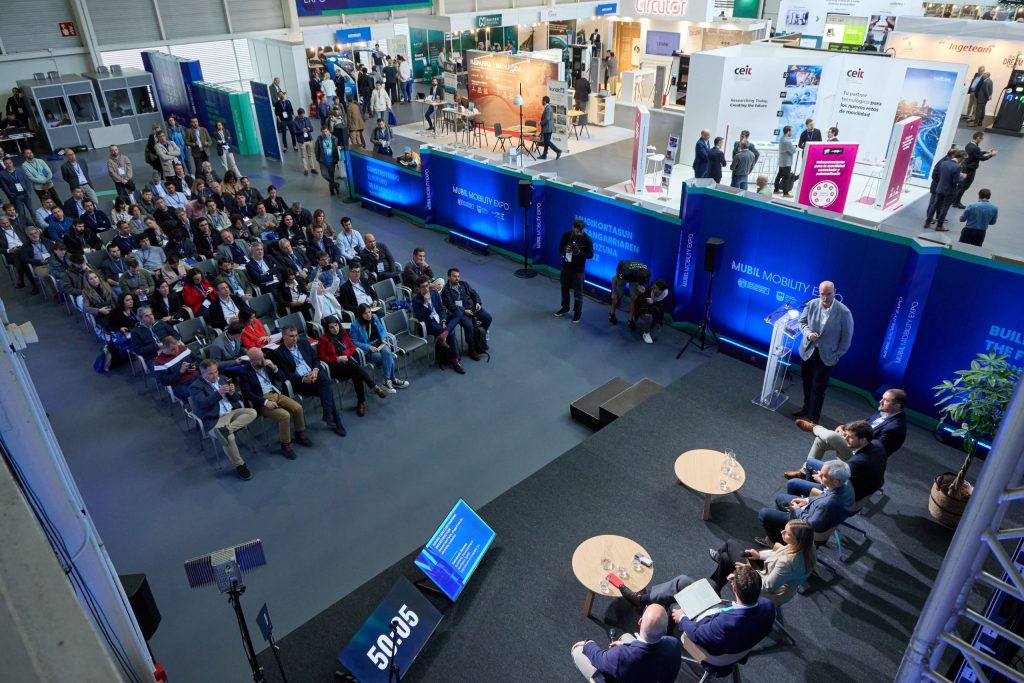CALL FOR SPEAKERS
The MUBIL Mobility Expo Call for Speakers is open to all exhibitors at the 2026 edition who can contribute innovative and disruptive ideas, visions, initiatives, projects, and solutions.
The MUBIL Mobility Expo Call for Speakers offers the opportunity to participate in the tradeshow’s Conference Programme, which brings together the most relevant contributions, the most innovative initiatives and the most suitable solutions in the field of sustainable mobility, understood as clean, accessible, safe and connected, through lectures by expert professionals and industry leaders.
key dates
7th November 2025 at 23:59 CET
If you are interested in submitting your application to the Call for Speakers and having the opportunity to participate in the MUBIL Mobility Expo Conference Programme, please contact the organisers:
What topics does the Conference Programme cover?
01. Industrialisation of electric mobility: transformation of the value chain
From combustion to electric powertrains: the great industrial leap
- The electrification of transport is accelerating a profound transformation of the industry. This thematic area analyses how value chains are being reorganized, what new industrial capabilities are required, and what opportunities are emerging around key products and their infrastructure.
- Electrification projections in Europe (2025–2030) for light and heavy vehicles
- Sustainable energy sources in transport and logistics (electrification, hydrogen, etc.)
- Impact on the industrial sector: challenges and opportunities
- New industrial products for EVs: batteries, power electronics, electric motors, specific gearboxes, thermal systems, ADAS, SWs, etc.
- Role of public-private collaboration: PERTE, VEC...
02. Digital, connected and autonomous mobility
Technology as a pillar of sustainable, connected and autonomous mobility
- AI, connectivity, blockchain, cybersecurity and automation are redefining the mobility experience and business models. From autonomous vehicles to smart urban systems.
- Connectivity and V2X platforms
- Connected and autonomous vehicles
- Artificial intelligence applied to sustainable mobility
- Blockchain and traceability
- The importance of cybersecurity in mobility ecosystems
- Big Data: the backbone of sustainable and connected mobility
03. Intermodal mobility and territorial cohesion
Accessible mobility that connects territories and people
- Transport solutions that enable intermodal mobility: urban, interurban and rural. Public-private models for territorial cohesion, accessibility and equity as a driver of territorial transformation.
- Mobility as a Service
- Personal mobility vehicles and infrastructure
- Multimodal ticketing and universal accessibility
- Innovation in public transport and new infrastructure
- Mobility solutions in rural environments
04. Urban planning and sustainable logistics
Mobility that transforms cities and urban spaces
- Integrated mobility solutions in cities, new forms of urban distribution, tactical urbanism, accessibility and participatory governance.
- Low Emission Zones (LEZ) and integrated management
- Last mile logistics
- Tactical urbanism and active mobility-oriented design
- Digital urban management platforms
- Participatory, accessible and inclusive models in urban mobility
05. New business models based on sustainable mobility
Mobility that transforms usage and ownership models
- New business models that promote a more efficient and sustainable use of mobility resources.
- Subscription models and flexible ownership
- Shared mobility services (cars, motorcycles, bicycles, scooters)
- Platforms for digital mobility solutions
- New roles in the mobility ecosystem: finance, car rental, dealership, manufacturer, leasing, etc.
06. Circular economy as a sustainability strategy applied to mobility
Mobility that transforms the value chain
- The circular economy as a key vector of sustainability in the mobility ecosystem. Circularity strategies in industrial processes to optimize resource use, reduce waste and generate positive impacts throughout the value chain.
- Industry commitment to sustainability driving the circular economy
- Impact of the circular economy on the value chain
- Smart energy storage
- Second life of batteries and new materials



 5th edition
5th edition 


